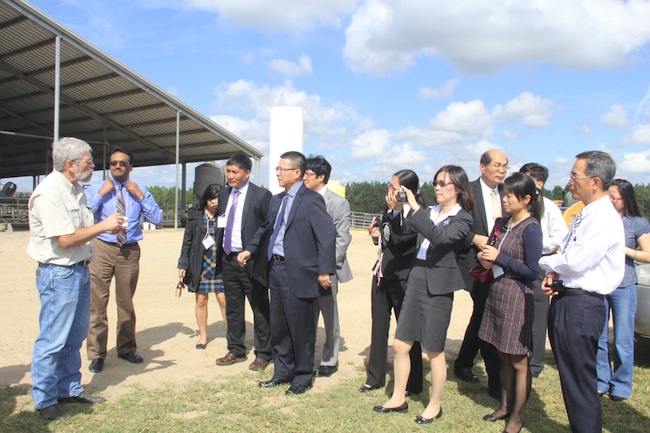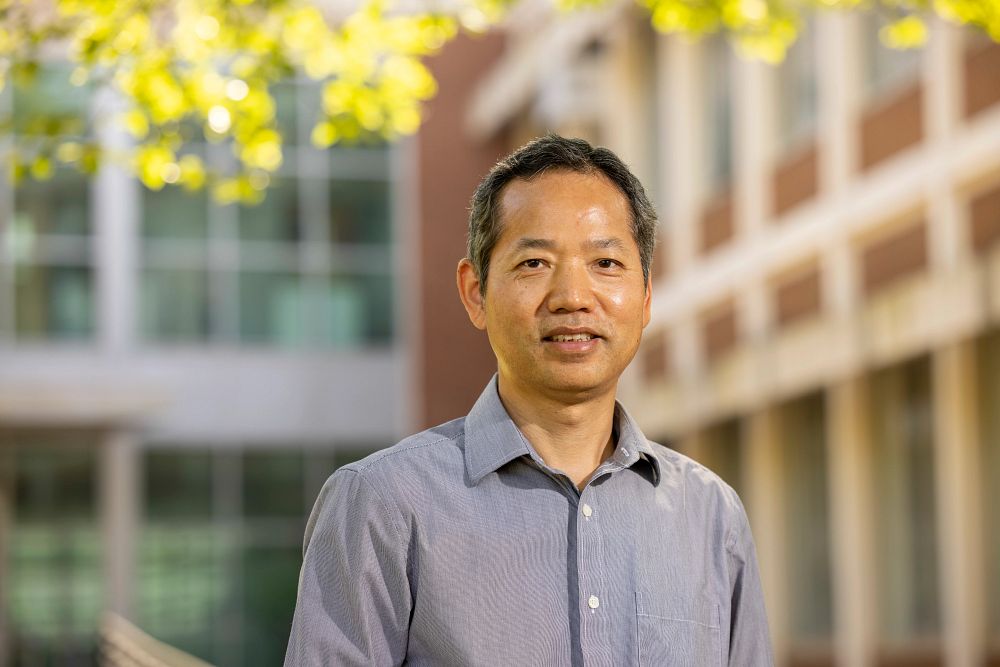A group of scientists from China, Taiwan and Japan traveled to south Georgia this week to share their work with University of Georgia researchers during the Seventh Annual Mini Summit on Food, Policy and the Environment. Cultural differences and thousands of miles separate the group, but they are unified in their primary concern — the safety of the world’s food supply.
The UGA College of Agricultural and Environmental Sciences’ Office of Global Programs hosted the 15 scientists for the summit, a partnership between UGA, Shanghai Academy of Agricultural Sciences (SAAS), Shanghai Ocean University (SHOU) and National Taiwan Ocean University (NTOU). Each year, one of these institutions hosts the summit.
“We brought the group to Tifton because it’s a very important part of the state of Georgia where agriculture is concerned,” said CAES Dean and Director Scott Angle. “California is running out of water and that’s where most of (America’s) fruits, vegetables and wine grapes are grown. A lot of the agriculture from that part of the country is moving to this part of Georgia.”
During the summit, held Oct. 13–15 on the UGA campus in Tifton, the Asian scientists shared their latest research on novel ways to control diabetes through natural supplements, improve the quality and safety of blue mackerel sashimi, keep ready-to-eat foods at safe temperatures and more. In turn, UGA scientists shared new methods for removing pesticide residues from fruits and vegetables, improving the safety of bean sprouts and controlling pathogens in farm-raised fish, as well as many other projects.
“We are looking for more ways to work together and find funding for new research opportunities,” said Angle of why the summit is held. “We want to reduce barriers and better export products to their countries. Georgia grows a large percentage of the pecans in the United States and some years, most of the crop is exported to Asian countries, especially China.”
Food scientist Guo-Jane Tsai of National Taiwan Ocean University said the safety of the world’s food supply is the reason the summit was first organized. NTOU will host the next summit in Taiwan.
“Food safety is an international issue because of global trade. Communication and establishing a platform are urgently needed,” Tsai said.
“The theme of the summit this year focused more on sustainability in food production as a cornerstone to build a better world for the future,” said Yifen Wang who represented Shanghai Ocean University. “Attendees come from all over the world from revered universities. (The summit) provides young scientists, students and policy makers a chance to exchange scientific information. In this era of global change and turbulence, we value strong academic exchange to achieve a safe food supply for all people.”
A professor of biosystems engineering at Alabama’s Auburn University, Wang is no stranger to the U.S. He also earned a master’s degree from University of Washington and PhD from Washington State University. Wang is currently teaching food engineering classes at Shanghai Ocean University and developing an academic exchange program between Auburn and SOU.
The visiting Asian scientists rounded out their visit to Georgia by attending the Sunbelt Agricultural Expo in Moultrie and meeting with UGA agricultural scientists on the main campus in Athens.
For a complete list of the research projects discussed at the summit and more on global programs at UGA, go to www.global.uga.edu/minisummit.







